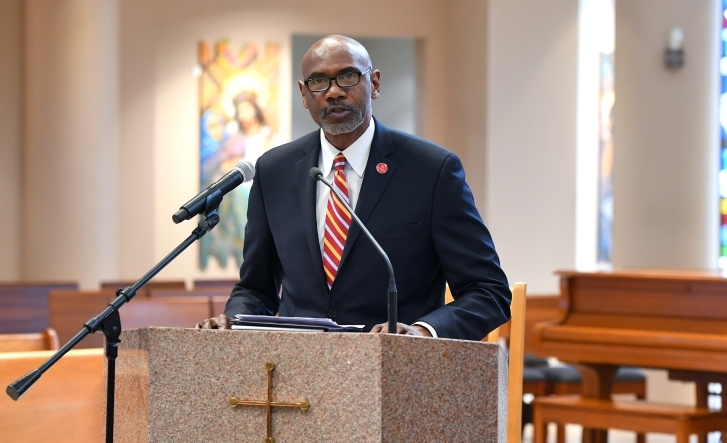St. John's English Professor Earns Acclaim for 18th-Century Scholarship
Melissa Mowry, Ph.D., professor of English, received the 2013–14 James L. Clifford Prize for her article, “Past Remembrance of History: Aphra Behn’s The Widdow Ranter, or How the Collective Lost Its Honor.”

“Winning this prize was a tremendous honor,” said Mowry, who accepted the award in March at the annual ASECS meeting in Williamsburg, VA. “It’s very encouraging to know that my particular method of blending literature and history is valued by my peers.”
In recognition of her contributions to academic research on 18th-century English literature and culture, a St. John’s professor of English was honored by the American Society for Eighteenth-Century Studies (ASECS) this spring. Melissa Mowry, Ph.D., professor of English, received the 2013–14 James L. Clifford Prize for her article, “Past Remembrance of History: Aphra Behn’s The Widdow Ranter, or How the Collective Lost Its Honor.”
“Winning this prize was a tremendous honor,” said Mowry, who accepted the award in March at the annual ASECS meeting in Williamsburg, VA. “It’s very encouraging to know that my particular method of blending literature and history is valued by my peers.” Guided by her commitment to social justice, Mowry focuses on the way society, politics, and literature intersected and disempowered the less-privileged members of society, especially women.
Mowry is currently finishing her book, Ties That Bind: The Hermeneutics of Collectivity and the English Literary Imagination: 1642–1748. She describes it as “a reexamination of how English literature is dominated by the imaginative force of the ‘non-elite’ community.” Anwar Uhuru ’16D.A., who is writing his thesis under her guidance, observed, “Dr. Mowry opened my eyes to how much can be learned about 18th-century history from the social critiques embedded in the writings of that time.”
Mowry’s interest in 18th-century writing took hold when she was in graduate school. “I found these books so full of humor and biting satire,” she said. She decided to continue her studies on the relationship between literature and marginalized members of society, and to bring her literary perspective into the classroom.
Impressed by the University’s stress on original research—and, she said, “its commitment to making those whose lives are sometimes invisible, visible”—Mowry joined St. John’s in 2001. Since then, she has published studies including The Bawdy Politic: Political Pornography and Prostitution, 1660–1714 (Ashgate, 2004) and a revised edition of Daniel Defoe’s Roxanna: The Fortunate Mistress (Broadview, 2009). “St. John’s has been very supportive of my work,” said Mowry who has received a summer research grant and five Faculty Achievement Awards.
Among her other accomplishments, Mowry won a coveted, three-month Folger Shakespeare Library Research Fellowship, which she used to conduct research on the dramatist Aphra Behn. She has been a member of the editorial board of the academic journal Genders for 10 years. Her next challenge is to initiate a collaborative undergraduate and graduate student humanities project on the art of digital archiving
“I would like my students to learn about the imaginative richness of the past,” Mowry said. “That informs the way we understand social relationships today.”



